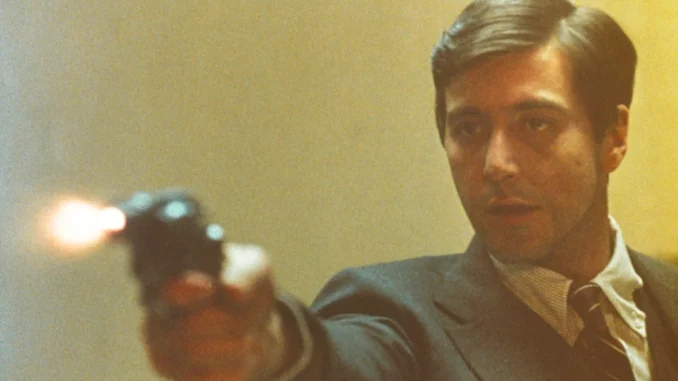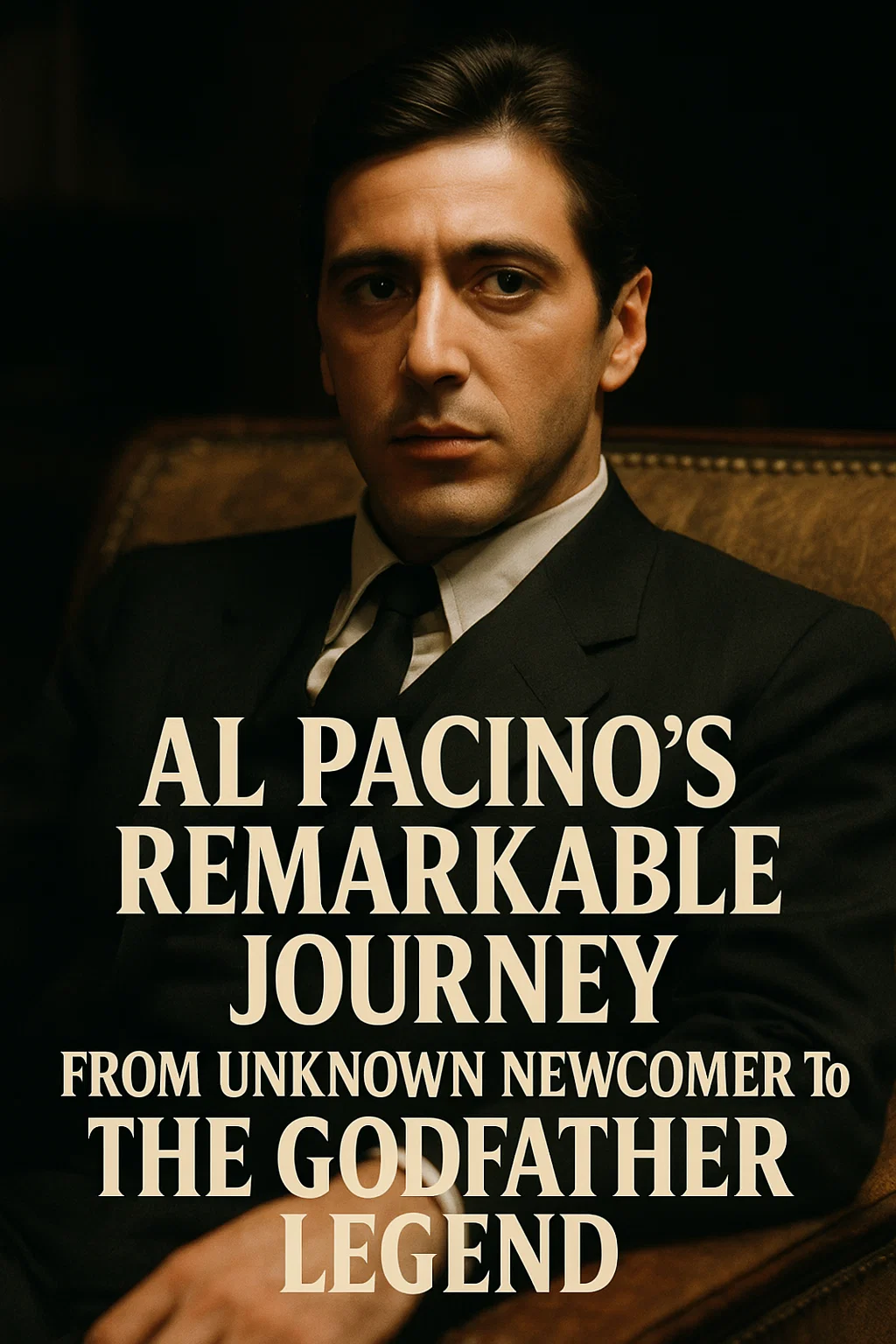
When The Godfather (1972) was released, few could have imagined that an unknown stage actor with little film experience like Al Pacino would become the soul of the masterpiece—and later, one of Hollywood’s greatest legends. His journey from a “rookie” doubted by many to a cinematic icon illustrates not only the rise of raw talent but also the role of luck, pressure, and resilience in the life of an actor.
Doubts at the Starting Line
At the time Francis Ford Coppola chose Pacino for the role of Michael Corleone, he faced fierce opposition from the studio. The reasons were clear: Pacino was no star. He was short, unpolished, and had no significant screen credits. Compared to big names like Robert Redford, Jack Nicholson, or Warren Beatty, he seemed like an unlikely choice.
But Coppola saw something others didn’t: a brooding intensity, restraint, and inner depth—the very qualities needed to portray Michael Corleone’s complex transformation from a gentle outsider to a cold, calculating mafia boss.
A Role That Changed Everything
When The Godfather premiered in March 1972, Pacino stunned audiences. With his piercing gaze and subtle shifts in demeanor, his Michael Corleone became the film’s emotional center. In one stroke, the doubted newcomer had become Hollywood’s most talked-about actor.
The role earned Pacino his first Oscar nomination and, more importantly, gave him a new artistic identity. Yet the meteoric rise also brought crushing pressure—something Pacino later admitted pushed him into years of psychological turmoil and substance abuse.

Defying Typecasting, Claiming His Own Path
What set Pacino apart was his refusal to be boxed in by Michael Corleone’s shadow. Though countless offers came for similar roles, he turned them down, choosing instead the harder path of reinvention.
This courage gave the world some of cinema’s most unforgettable characters: the uncompromising cop in Serpico (1973), the idealistic lawyer in …And Justice for All (1979), the unhinged drug lord Tony Montana in Scarface (1983), and the criminal mastermind in Heat (1995). Each role proved that Pacino was more than Michael Corleone—he was an artist constantly challenging himself.
From Rebel to Legend
In his early years, Pacino was known for his rebellious streak—skipping the Oscars, rejecting Hollywood’s rituals. But in time, that rebellion gave way to resilience and dedication. In 1992, after decades of living under The Godfather’s looming shadow, Pacino finally won his first Academy Award for Scent of a Woman. It was not just recognition for a single role, but a validation of his entire journey of persistence and reinvention.
The Legacy of a Legend
Today, when people think of The Godfather, they recall not only its world of power and shadows but also the haunting figure of Michael Corleone—brought to life with unmatched subtlety by Pacino. From a young actor dismissed as unfit, he transformed the role into his “winning lottery ticket,” carving out a career that would shape film history.
Al Pacino’s story shows that sometimes, a single opportunity can turn a doubtful newcomer into a legend—if that artist has the talent, courage, and determination to make it his own.
